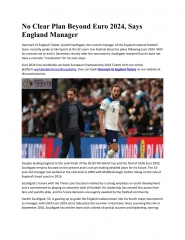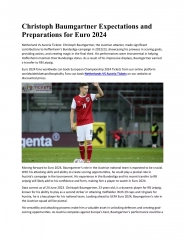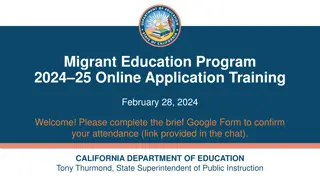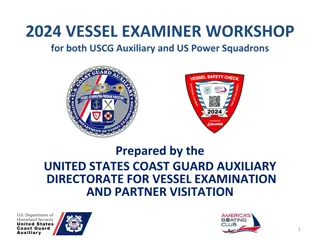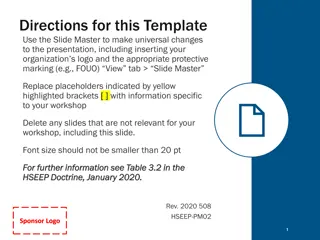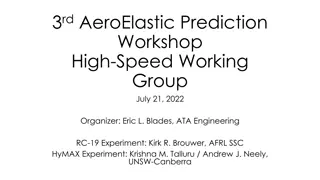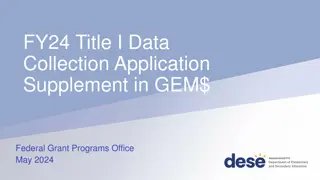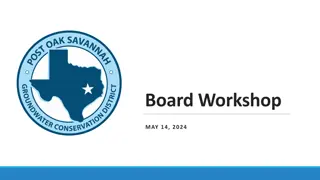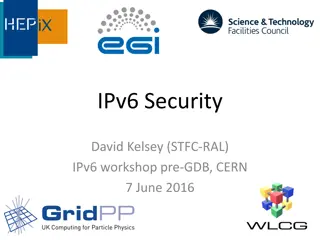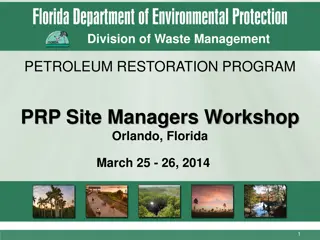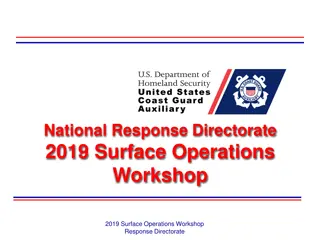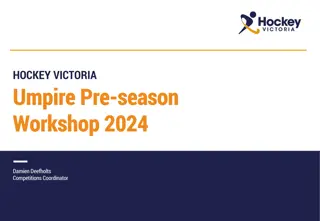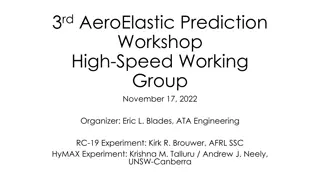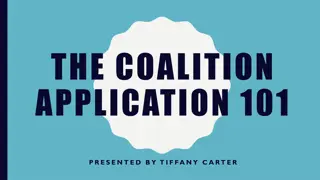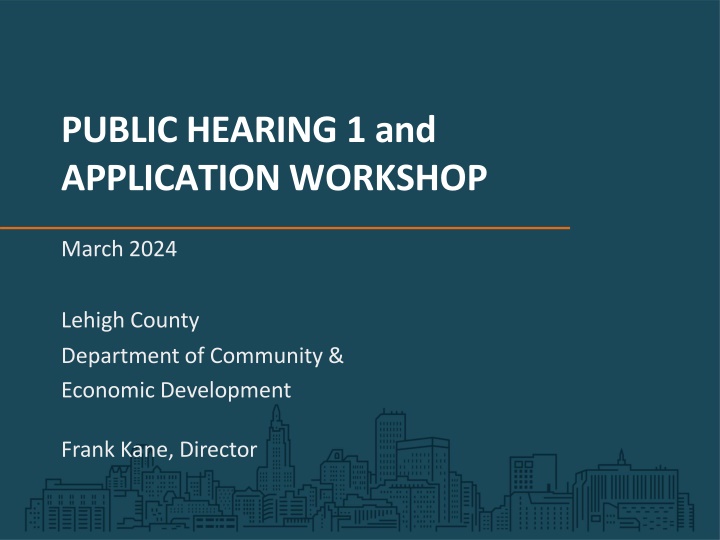
Lehigh County Public Hearing and Application Workshop March 2024
Join Lehigh County Department of Community & Economic Development for a Public Hearing and Application Workshop in March 2024 to discuss funding, eligibility, and application processes for Community Development Block Grant and HOME Investment Partnerships. Learn about the annual plan schedule, eligible activities, and more.
Uploaded on | 1 Views
Download Presentation

Please find below an Image/Link to download the presentation.
The content on the website is provided AS IS for your information and personal use only. It may not be sold, licensed, or shared on other websites without obtaining consent from the author. If you encounter any issues during the download, it is possible that the publisher has removed the file from their server.
You are allowed to download the files provided on this website for personal or commercial use, subject to the condition that they are used lawfully. All files are the property of their respective owners.
The content on the website is provided AS IS for your information and personal use only. It may not be sold, licensed, or shared on other websites without obtaining consent from the author.
E N D
Presentation Transcript
PUBLIC HEARING 1 and APPLICATION WORKSHOP March 2024 Lehigh County Department of Community & Economic Development Frank Kane, Director
Agenda Introductions Purpose of the Public Hearings Anticipated Funding Annual Plan Schedule Application & Evaluation Process Consolidated Plan Goals Scoring for CDBG Funding Overview Eligible Activities for HOME Detailed overview with project discussion available by request CDBG Overview Eligible Activities National Objectives Grant Requirements Q & A and Comments on Lehigh County s CDBG Program
Meet the Team Department Director Frank Kane Grants Management Specialist Laurie Moyer Grants and Projects Manager George Samuelson Executive Assistant Cyndi King
Public Hearings The purpose of the public hearings: Collect comments from citizens, municipalities, and public service providers on the needs of LMI individuals and communities in Lehigh County, and how CDBG and HOME can help. Discuss the application process, including eligibility and fundability. Bring awareness of administration requirements to potential applicants.
Anticipated Funding The County receives entitlement funding from the U.S. Dept. of HUD on an annual basis. Community Development Block Grant (CDBG): $1,247,023 As of FY 2022, Lehigh County is also a PJ HOME Investment Partnerships (HOME): $574,620
Annual Plan Schedule FY 2024 Process Timeline Application Deadline: April 15, 2024 Awards to be Determined by June 7th 30 Day Comment Period begins July 1st Public Hearing July 11th at 12 pm in Room 524 Annual Plan Submitted to HUD by August 15, 2024 HUD Review of Action Plan: +/- 45 Days HUD Release of Funds Program Year: October 1, 2024 thru September 30, 2024
APPLICATION & EVALUATION PROCESS
ApplicationProcess Application https://www.lehighcounty.org/Departments/Community- Economic-Development/Grant-Programs forms for grants can be found at: Lehigh County solicits initiatives i n accordance with identified priorities & needs, and are awarded on a competitive basis. proposals for federally-funded
Consolidated Plan Goals Projects must fit into a goal and a strategy https://www.lehighcounty.org/Departments/Community- Economic-Development/CDBG-Grant-Application Find the list on the left of the page FY 2019-2024 Consolidated Plan Goals CDBG Goals Housing improve, preserve, and expand affordable housing supply (7 strategies) Homeless improve living conditions and services for the homeless (3 strategies) Other Special Needs improve, preserve, and expand facilities for persons with special needs and the disabled (3 strategies) Community Development improve, preserve, and create new public and community facilities, infrastructure, and public services (7 strategies) Economic Development increase and promote job creation, job retention, self- sufficiency, education, job training, technical assistance and economic empowerment of LMI residents (4 strategies) Administration and Planning (2 strategies)
Consolidated Plan Goals HOME 1 Goal Housing improve, preserve, and expand affordable housing supply (7 strategies) 1) Home Ownership 2) Mixed Income Housing 3) Housing Rehabilitation 4) Housing Construction 5) Revitalization 6) Fair Housing 7) Housing Support
Scoring Criteria - CDBG Applications Construction Projects o Projects located in a low- to moderate-income (LMI) municipality will receive priority consideration for funding. Municipalities designated as LMI are Catasauqua, Coplay, Hanover, Fountain Hill, Macungie, and Slatington. The percent of LMI individuals living within the census block groups of these municipalities averages at least 38.29%. o Projects must meet one of Lehigh County s Five-Year Consolidated Plan goals. o Consideration will also be given to projects not located in an LMI community. Such projects should meet the following criteria: Ability of the new project to be completed between January 1, 2025 and August 31, 2025. Applicability to Lehigh County s Five-Year Consolidated Plan goals. Hard cost match of 10% of request is dedicated by the applicant to completing project construction. CDBG request doesn t exceed $125,000. Public Services o Projects not funded via FY 2023: applications will be accepted for new or existing services. Applications for existing services must prove at least a 40% quantifiable increase in the need for the service over the past 12 months. On the CDBG application webpage, there are examples illustrating public services and quantifiable increase in need. Please reference this page, entitled Quantifiable Increase for Public Services for details on satisfying the documentation requirements. o Projects funded via FY 2023 and asking for an increase in funding must provide data proving that there was at least a 40% quantifiable increase in the need for services over the past 12 months. o Projects funded via FY 2023 and not asking for an increase in funding do not need to prove an increase in need. o All projects must fit into Lehigh County s Five-Year Consolidated Plan goals and substantiate the ability to spend down the requested amount between October 1, 2024 and September 31, 2025.
CDBG Eligible Activities Public Service Eligibility Worksheet 1. Was this project funded via 2023 CDBG? Yes go to Question 2. No go to Question 3. 2. Are you requesting the same amount (or less than) the amount awarded via 2023 CDBG for the same project? Yes skip the rest of this Public Service Project Worksheet section. (The Public Service eligibility requirements have been met.) No go to question 3. 3. Is this a new project being offered by your agency? Yes skip the rest of this Public Service Project Worksheet section. (The Public Service eligibility requirements have been met.) No go to question 4. 4. Are you able to prove a quantifiable increase in need over the past 12 months, enabling the proposed project to be funded? Yes go to question 5. No If the project was funded via 2023 CDBG, the project can only request the same amount as previously awarded. If the project is not new, and did not receive 2023 CDBG, then the project is ineligible. (Stop here and do not submit an application.) 5. Please describe the need for the project 12 months ago vs. the current need. Also, describe how the quantifiable data was collected. Qualitative support will not be accepted. If only qualitative support exists, stop here; do not submit an application.
HOME Investment Partnerships Eligible HOME Activities and Costs: Hard Costs New construction of affordable housing Rehabilitation of affordable housing Reconstruction of affordable housing Conversion to affordable housing Site Improvements related to the development of affordable housing Refinancing of existing debt secured by a housing project that is being rehabilitated w/ HOME Funds Acquisition Costs Improved or unimproved Purchase of property by home buyers
HOME Investment Partnerships Eligible HOME Activities and Costs Continued: Soft Costs necessary for the financing, development, rehabilitation or acquisition of housing using HOME Funds Architectural, engineering, and related professional services Community Housing Development Organization (CHDO) Costs Relocation costs for displaced households Administrative and planning costs
HOME Investment Partnerships Eligible HOME Activities and Costs Continued: Other Costs Fair housing activities to affirmatively further fair housing Downpayment and closing cost assistance Indirect costs as part of a cost allocation plan Preparation of the consolidated plan Compliance and reporting in reference to Federal requirements Tenant-based rental assistance (TBRA) Rental assistance and security deposit payments Utility deposit assistance only if rental or security deposit payments are made Cost of inspecting the housing and determining income eligibility of the household
HOME Investment Partnerships Ineligible HOME Activities: Provide project reserve accounts, except for new construction or rehabilitation of an initial operating deficit reserve during the period of project read-up (not to exceed 18 months) Provide tenant-based rental assistance for the special purpose of the existing Section 8 Program Provide non-Federal matching contribution required under another Federal Programs Provide assistance for uses authorized by Public Housing Capital and Operating Funds Prepayment of Low Income Housing Mortgages Provide assistance to a homebuyer to acquire housing previously assisted with HOME funds during the period of affordability Provide funds for the acquisition of property owned by the participating jurisdiction (P.J.) except for property acquired by the P.J. with HOME funds, or property acquired in anticipation of carrying out a HOME project Pay for delinquent taxes, fees or charges on properties to be assisted with HOME funds
CDBG - Overview HUD Funding Resources CDBG Guide to National Objectives & Eligible Activities: https://www.hudexchange.info/resources/documents/CDBG_Guide_National_Objectives_E ligible_Activities.pdf Playing by the Rules: A Handbook for CDBG Subrecipients on Administrative Systems: http://portal.hud.gov/hudportal/documents/huddoc?id=DOC_17104.pdf Managing CDBG: A Guidebook for Grantees on Subrecipient Oversight: https://portal.hud.gov/hudportal/documents/huddoc?id=DOC_17086.pdf
CDBG - Overview History: CDBG funded via Title I of Housing & Community Development Act of 1974. Primary Purpose: Provide Quality Affordable Housing Create Suitable Living Environments Expand Economic Opportunities
CDBG - Overview National Objectives of the CDBG Program 1. Benefit low- and moderate-income (LMI) persons Minimum 70% of allocation annually Determined by area (census block group or household surveys) Limited Clientele at least 51% of households served were documented as LMI LMI Household the individual household is documented as LMI LMI Jobs an LMI individual holds or will be placed in a job 2. Prevent or eliminate slums or blight Spot or area blight 3. Meet other community development needs having a particular urgency because existing conditions post a serious and immediate threat to the health or welfare of the community AND other financial resources are not available
CDBG Low/Mod Low and Moderate Income (LMI) means a family or household with an annual income less than80 percent of the area median income. Income Limitsfor CDBG are updated annually.Subrecipients are responsible for ensuring they use the current income limitto capture beneficiary data. http://www.huduser.org/portal/datasets/il.html
CDBG National Objective Low/Mod Activities must be open to and benefit all residents of the area Agency must determine service area of activity Area must be primarily residential At least 38.29% of project beneficiaries must be LMI; determined by Census block group or household surveys Activity Examples: Street Reconstruction (not resurfacing) Neighborhood cleanups Water/sewer improvements Creation of a neighborhood park Area Benefit (LMA)
CDBG National Objective Where are the LMI Areas? Go to https://www.lehighcounty.org/Departments/Community- Economic-Development/CDBG-Grant-Application Low Mod Income Data Lists all Lehigh County block groups LMI percentage Block Group Maps Map of each municipality illustrating block group boundaries To determine information on specific addresses: https://hud.maps.arcgis.com/home/item.html?id=ffd0597e8af24f88b501b7e 7f326bedd Click on View , search for a particular address, then click on the map. A box pops up with lots of info, most importantly the census tract, block group, and lowmod_pct .
CDBG National Objective Low/Mod Limited Clientele (LMC): Activities benefit specific populations of clients Agencies must document that at least 51% of participants are Low/Mod individuals Income Certification/Intake Form Activity Examples: Subsistence Services max 3 months of rent/utilities Legal services Workforce training for the formerly incarcerated Microenterprise technical assistance programs
CDBG National Objective Limited Activities benefit specific population groups that are presumed to be LMI: Senior Citizens (62+) Homeless Individuals/Families Child in DCYF Custody Severely Disabled Adults Person with HIV/AIDS Victims of Domestic Violence Migrant Farm Workers Note: Presumed benefit relates onlyto income. Data regarding race, ethnicity, gender, disability status, veteran status, and the total number of unduplicated clients served in the program must still comply with HUD regulations. Clientele Presumed Benefit (LMPB):
CDBG National Objective Low/Mod Activities to generate economic opportunities Job Creation: Documentation must indicate that at least 51% of the jobs will be held by, or made available to, LMI persons Job Retention: Documentation must indicated that the jobs would have been lost without the CDBG assistance and that at least 51% of the jobs are held by LMI persons and/or the job can reasonably be expected to turn over within the following two years and steps will be taken to ensure that the job will be filled by, or made available to, a LMI person Public Benefit Standard: Create or retain at least one full-time, permanent job per $35,000 of CDBG funds used Typical activities: Business loans, commercial rehabilitation, business technical assistance Job Creation (LMJ):
CDBG National Objective Low/ModHousing (LMH): Activities to acquire, construct, or improve permanent, residential structures which are/will be occupied by LMI persons. Typical activities: Acquisition of property to be used for permanent housing Rehabilitation of permanent housing, rental or owner-occupied Conversion of nonresidential structures into permanent housing Assistance to a household to enable it to acquire ownership of a home (homeownership assistance).
CDBG - Overview Eligible Activities: Projects must benefit those living in Lehigh County but outside the cities of Allentown and Bethlehem, as well as Lower Milford Township. CDBG can support a variety of project types Most activities that benefit low- and moderate-income individuals and meet the needs of the community are eligible; however,theregulationsmake funding complicatedto use.
CDBG - Overview Primary Eligibility Categories Public Service maximum of 15% of net allocation Public Facility or Infrastructure Improvements AffordableHousing
CDBG Eligible Activities Public Services: Direct, quantifiable social service delivery to eligible clients. Activities eligible under this category include (but are not limited to): Job Training Child Care Health Services Senior Services Afterschool Programs Homeless Services Domestic Violence Prevention Legal Services Housing Counseling Food Banks
CDBG Eligible Activities Public Facility Improvements - improvements to publicly-owned facilities and infrastructure such as streets, playgrounds, and underground utilities, and buildings owned by non-profits that are open to the general public. Activities eligible under this category include (but are not limited to): Rehabilitation or construction of a neighborhood community center Rehabilitation or construction of a homeless shelter Rehabilitation or construction of facilities serving persons with disabilities Improvements to public libraries ADA modifications Installation of broadband infrastructure Housing Authority improvements
CDBG Eligible Activities Housing: activities to foster safe, affordable housing opportunities for low/moderate income households. Activities eligible include: Housing rehabilitation programs Energy efficiency & weatherization programs Conversion of closed buildings to residential use Rehabilitation of housing for rent or sale Acquisition & site improvements for housing
CDBG Eligible Activities Other Eligible Activities Economic Development: activities to foster economic opportunity, including microenterprise and small business development, commercial and industrial development, and job creation, job retention, and job training activities. Technical assistance and workshops for small businesses Grant programs for small businesses Fa ade improvement programs Lending programs to for-profits Real Property Acquisition fundability based on reuse of property Relocation expenses to relocate residents during a project Demolition Administration & Planning
Grant Requirements Receiving a federal grant through Lehigh County means: Complying with all applicable federal and local requirements Keeping records for at least 5 years after program/project completion Maintaining a strong fiscal management system Agreeing to be monitored by HUD & Lehigh County at any time Submitting timely quarterly and annual reports Complying with contract terms; Commitments can be canceled or contracts terminated due to non- compliance.
Grant Requirements NEPA Environmental Review: Lehigh County will conduct an Environmental Review and Historic Review of all projects for Subrecipients. NO WORK can start until you have been notified in writing that the Environmental Review is complete After your application has been submitted, DO NOT: Acquire, rehabilitate, convert, repair, begin or continue any construction Solicit bids for the project (but you can get estimates) Enter into a purchase and sale agreement Finalize a closing of sale
Grant Requirements Davis Bacon Act: Construction projects >$2,000 funded in whole or in part with federal funds All laborers and mechanics employed by contractors or subcontractors are to be paid federal prevailing wages May increase cost of project Requires weekly payment of wages Each contractor must: Submit weekly certified payrolls reflecting all hours worked
Grant Requirements Lehigh County Grant Ordinance Financial documentation must be submitted at the time of application. Documentation will be placed on Lehigh County s website and removed after processing of the CDBG award ordinance. 1. The current and previous fiscal year s budget, including the actual revenues and expenditures for the previous year 2. Audited financial statements for the two (2) previous fiscal years 3. The positions of all employees, officers and board members who receive $50,000.00 or more in annual compensation, including bonuses, from the requesting organization 4. The total compensation of the organization s five (5) highest compensated individuals 5. A list of all funding sources and the total amount received from each funding source for the previous Year 6. A list of all funding sources for the current year, and a list of all pending applications for funding, including the amount requested
Grant Requirements Procurement: Procurement must comply with local, state, & federal requirements. Non-profits shall follow their agency s formal procurement guidelines. Lehigh County Administrative Code shall be adhered to if an agency doesn t have formal procurement guidelines. Typically a minimum of three written quotes or estimates is required. Sealed bids required on larger projects. MBE/WBE: Requires reasonable efforts to be made to solicit bids from and procure goods and services from minority and woman-owned business enterprises for construction contracts in excess of $25,000. Will require documentation that you actively solicited bids from a minimum number of MBE/WBE firms.
Grant Requirements Section 3 of the HUD Act of 1968 A requirement to ensure that economic opportunities generated by certain HUD assistance is directed to low- and very-low income persons. Applicable to housing rehabilitation, housing construction, and other public construction or demolition projects that are funded with $200,000 or more of CDBG and/or HOME funding. Requirements apply to the entire project regardless of whether the project is fully or partially funded with HUD funding. Subrecipients must include the Section 3 clause in their contracts, ensure that the lowest bidder authorizes the affirmative action plan, and also ensure that the contractor meets labor hour benchmarks or demonstrates qualitative efforts attempting to meet the benchmarks. Public Service Projects: Failure to submit quarterly or annual reports on a timely basis may result in forfeiture of CDBG award or agency ineligibility for future CDBG funding. Failure to complete the project within 60 days past the close of the program year will result in relinquishment of unused funding.
Grant Requirements Payments are made on a reimbursement basis Request for Payment requires: Letter Requesting Funds on Signed Letterhead or signed Agency Invoice Based on expenditures outlined in budget; budget is memorialized by contract For salaries employee timesheets reflecting actual time worked on CDBG-funded project For supplies, equipment, construction services receipts / copies of invoices and canceled checks to prove payment of those invoices. Costs billed to the grant must be reasonable and proportional; need cost allocation plan if billing rent or operating expenses, or 10% de minimus of eligible costs.
Grant Requirements Expect to retain files for 5+ years after grant close- out. Program files should contain: Original executed copy of the agreement with Lehigh County Any amendments to the application and agreement Correspondence relating to the grant award Copies of requests for reimbursement and all supporting documentation Any other information pertinent to the Grant (Intake Forms, Client Income Verifications, income documentation, etc.) Documentation of procurement (if applicable)
Grant Requirements Monitoring is not a one-time event, it s ongoing throughout the entire lifespan of the funds Review occurs onsite and remotely Risk-based approach may be utilized when needed to determine which agencies should be prioritized for monitoring Technical assistance may be requested prior to or in conjunction with monitoring effort Monitoring reports reviewed by HUD Goal is to ensure your success
CONTACTUS Laurie Moyer Grants Management Specialist lauriemoyer@lehighcounty.org (610) 871-1964 George Samuelson Grants and Projects Manager georgesamuelson@lehighcounty.org (610) 782-3855






